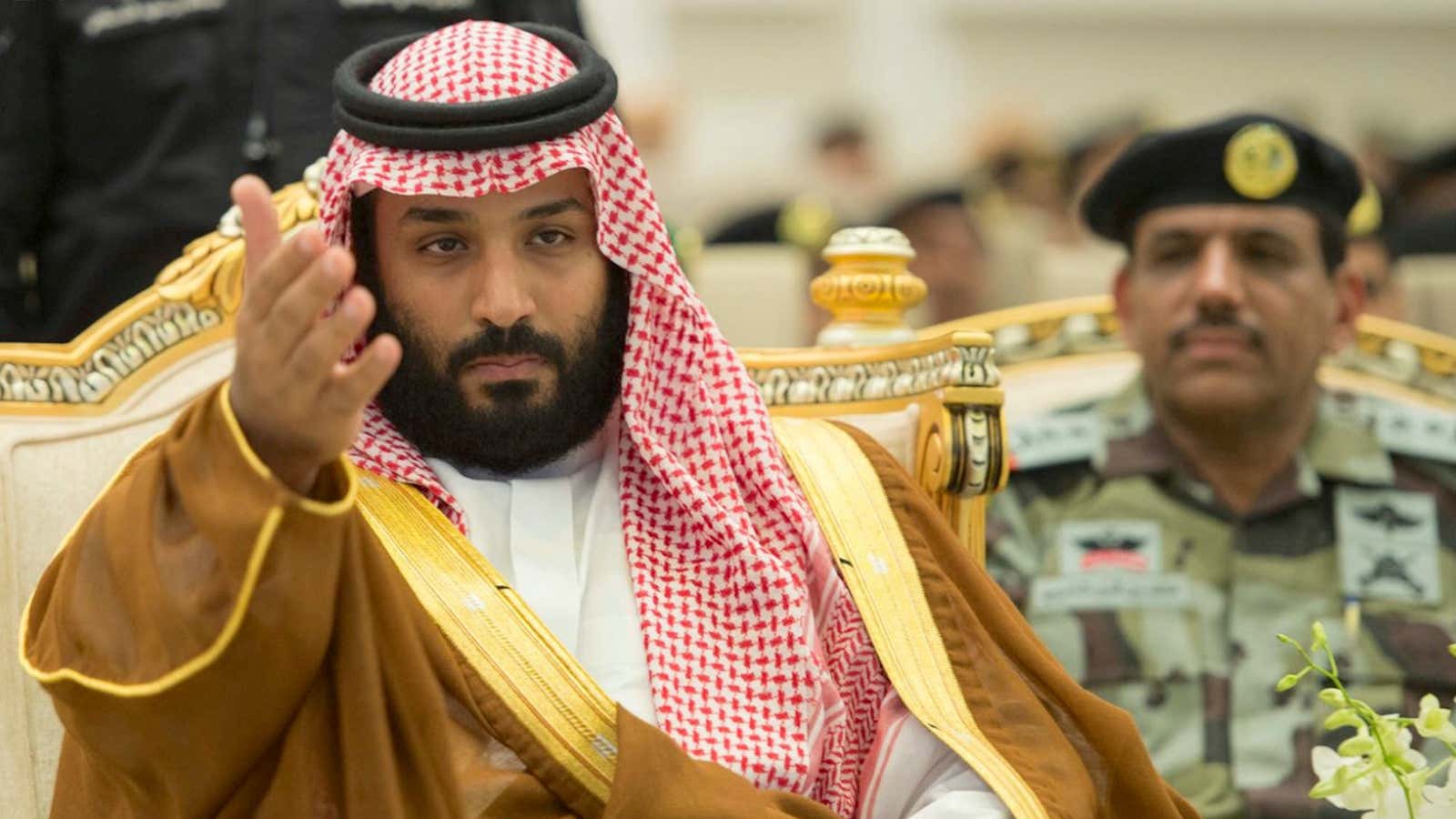Saudi Arabia is desperate to diversify its economy away from oil. That’s why, last year, it launched a series of reforms and initiatives it dubbed the National Transformation Program 2020 (pdf).
Just over a year after launching the plan, Saudi Arabia is going to redraft it by “stripping out some areas earmarked for change and extending the timeline of other targets,” as well as “change existing initiatives and add new ones,” according to the Financial Times (paywall). Apparently, the rethink is because Crown Prince Mohammed bin Salman’s plans were overly ambitious.
Sitting atop some 20% of the world’s petroleum reserves, the oil and gas sector accounts for nearly half of Saudi Arabia’s GDP. It is the country’s golden goose for exports, accounting for 85% of earnings, according to OPEC.
Such an unbalanced economy is dangerous when energy prices slump, as they have since 2014, with crude oil falling from above $100 per barrel to around $50 today. This has blown a hole in Saudi’s budget, forcing it to burn through its reserves and borrow billions to finance its deficit. This year, Saudi Arabia’s GDP growth is set to be “close to zero,” according to the IMF. Meanwhile, renewable energy is steadily becoming more competitive with fossil fuels.
The initiatives in the kingdom’s transformation plan included creating 1.2 million private-sector jobs and reducing unemployment to 9% by 2020, from 11.6% when it was launched. The country is in the process of spending $100 billion to build King Abdullah Economic City, intended to be a business-friendly hub that will attract foreign investment in manufacturing, tech, and pharmaceuticals. It is also betting big on tourism.
Saudi Arabia is looking to raise money by partly privatizing its state-owned behemoth of an oil company Saudi Aramco, in what will be the world’s largest IPO. Alongside the economic transformation plan, proceeds from the Saudi Aramco stake sale—scheduled for next year, but possibly subject to delay (paywall)—will be vital to funding the huge investments necessary to shift the country away from its reliance on oil.
But from the looks of things, the Saudis are finding that preparing for life after oil is easier said than done.
